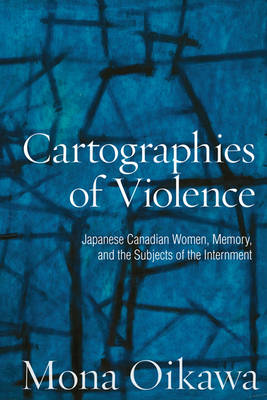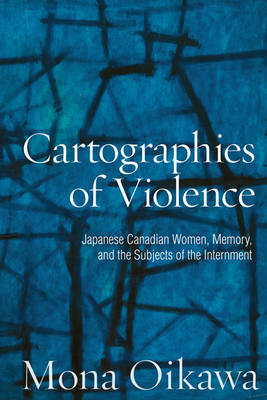
Door een staking bij bpost kan je online bestelling op dit moment iets langer onderweg zijn dan voorzien. Dringend iets nodig? Onze winkels ontvangen jou met open armen!
- Afhalen na 1 uur in een winkel met voorraad
- Gratis thuislevering in België vanaf € 30
- Ruim aanbod met 7 miljoen producten
Door een staking bij bpost kan je online bestelling op dit moment iets langer onderweg zijn dan voorzien. Dringend iets nodig? Onze winkels ontvangen jou met open armen!
- Afhalen na 1 uur in een winkel met voorraad
- Gratis thuislevering in België vanaf € 30
- Ruim aanbod met 7 miljoen producten
Zoeken
Cartographies of Violence
Japanese Canadian Women, Memory, and the Subjects of the Internment
Mona Oikawa
€ 63,95
+ 127 punten
Omschrijving
In 1942, the federal government expelled more than 22,000 Japanese Canadians from their homes in British Columbia. From 1942 to 1949, they were dispossessed, sent to incarceration sites, and dispersed across Canada. Over 4,000 were deported to Japan. Cartographies of Violence analyses the effects of these processes for some Japanese Canadian women. Using critical race, feminist, anti-colonial, and cultural geographic theory, Mona Oikawa deconstructs prevalent images, stereotypes, and language used to describe the 'Internment' in ways that masks its inherent violence.
Through interviews with women survivors and their daughters, Oikawa analyses recurring themes of racism and resistance, as well as the struggle to communicate what happened. Disturbing and provocative, Cartographies of Violence explores women's memories in order to map the effects of forced displacements, incarcerations, and the separations of family, friends, and communities.
Through interviews with women survivors and their daughters, Oikawa analyses recurring themes of racism and resistance, as well as the struggle to communicate what happened. Disturbing and provocative, Cartographies of Violence explores women's memories in order to map the effects of forced displacements, incarcerations, and the separations of family, friends, and communities.
Specificaties
Betrokkenen
- Auteur(s):
- Uitgeverij:
Inhoud
- Aantal bladzijden:
- 432
- Taal:
- Engels
- Reeks:
Eigenschappen
- Productcode (EAN):
- 9780802096012
- Verschijningsdatum:
- 10/09/2012
- Uitvoering:
- Paperback
- Formaat:
- Trade paperback (VS)
- Afmetingen:
- 150 mm x 226 mm
- Gewicht:
- 680 g

Alleen bij Standaard Boekhandel
+ 127 punten op je klantenkaart van Standaard Boekhandel
Beoordelingen
We publiceren alleen reviews die voldoen aan de voorwaarden voor reviews. Bekijk onze voorwaarden voor reviews.











